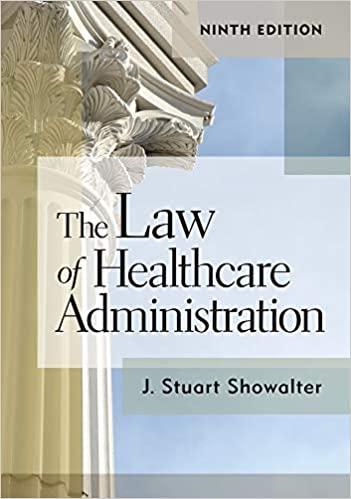In order to sustain its burden of proof against the hospital executives for the crime of violating
Question:
In order to sustain its burden of proof against the hospital executives for the crime of violating the Anti-Kickback statute, the government must prove beyond a reasonable doubt that the defendant under consideration offered or paid remuneration with the specific criminal intent “to induce” referrals.
To offer or pay remuneration to induce referrals means to offer or pay remuneration with the intent to gain influence over the reason or judgment of a person making referral decisions. The intent to gain such influence must, at least in part, have been the reason the remuneration was offered or paid.
On the other hand, defendants Anderson, Keel, and McClatchey cannot be convicted merely because they hoped or expected or believed that referrals may ensue from remuneration that was designed wholly for other purposes.
Likewise, mere oral encouragement to refer patients or the mere creation of an attractive place to which patients can be referred does not violate the law.
There must be an offer or payment of remuneration to induce, as I have just defined it.
McClatchey contends this instruction was incorrect and warrants a new trial, because a defendant should not be convicted under the Act when his offer or payment of remuneration was motivated merely in part to induce referrals, but rather the motivation to induce referrals must be the defendant’s primary purpose. . . . Whether the “at least in part” or “one purpose” standard applied in the instant case constitutes a correct interpretation of the Act is an issue of first impression in this Circuit. McClatchey urges this court to reject the test set out in Instruction 32 as too broad, because “[e]very business relationship between a hospital and a physician is based ‘at least in part’ on the hospital’s expectation that the physician will choose to refer patients.” This argument, however, ignores the actual instruction given in the instant case, in which the district court specifically informed the jury that “McClatchey cannot be convicted merely because [he] hoped or expected or believed that referrals may ensue from remuneration that was designed wholly for other purposes.” According to this instruction, therefore, a hospital or individual may lawfully enter into a business relationship with a doctor and even hope for or expect referrals from that doctor, so long as the hospital is motivated to enter into the relationship for legal reasons entirely distinct from its collateral hope for referrals.
The only three Circuits to have decided this issue have all adopted the “one purpose”
test. [One of these was Greber, which was set forth earlier.] In Greber, a doctor who owned a diagnostic laboratory was convicted of violating the Act because he paid “interpretation fees” to other physicians to induce them to refer Medicare patients to use his laboratory’s services. Defendant Greber asserted that these interpretation fees compensated the physicians both for providing initial consultation services and for explaining the test results to the patients................
Discussion Questions
1). Determining difficult questions of fact is the jury’s job. If you had been a juror in this case and had heard “Instruction 32,” where would you have drawn the line between an intent to induce referrals and a mere hope that referrals might ensue?
2). The summary given here leaves out many important facts. What other facts might have been important to you as a juror?
3). Recognizing that physicians are their lifeblood, hospitals have long provided certain amenities to keep them happy. Among these perks are preferred parking, free meals, and “professional courtesy” (discounted care for themselves and their family members).
Because the one-purpose test now appears to be the accepted standard under the FCA, and because a purpose of “keeping the docs happy” is to encourage them to refer patients to the facility, are these types of benefits illegal?
Step by Step Answer:






